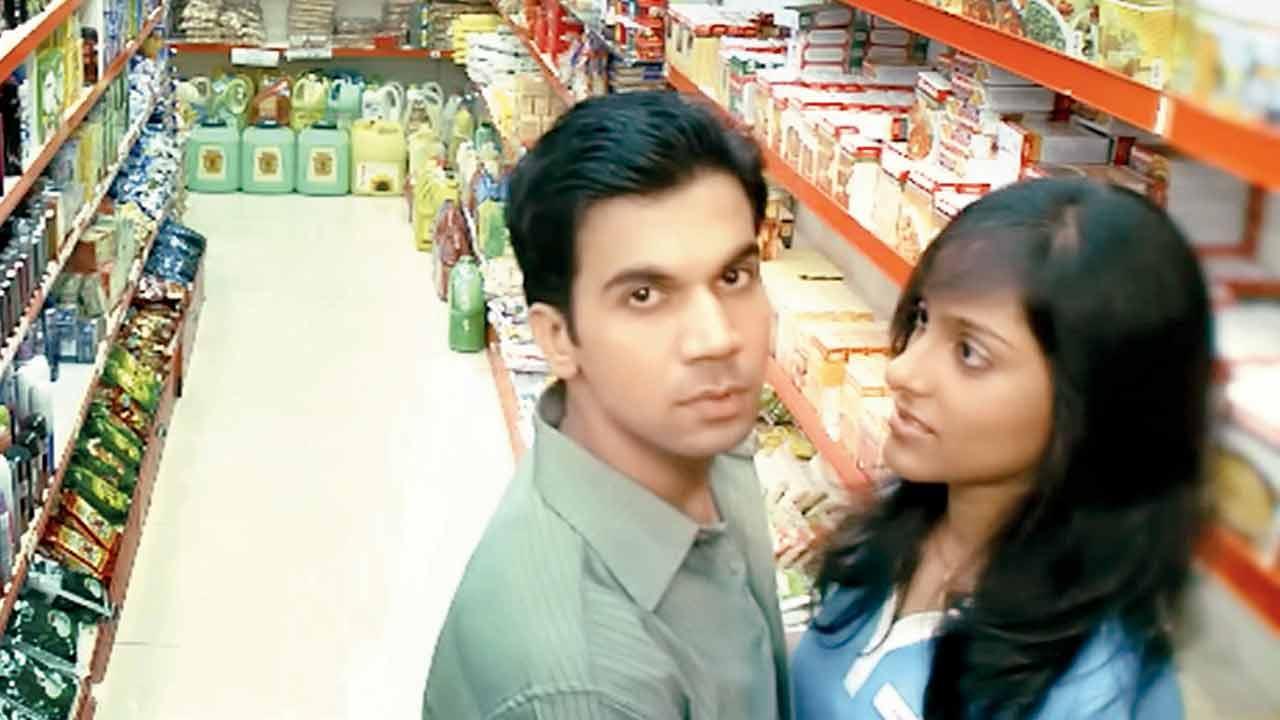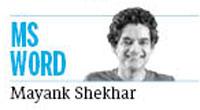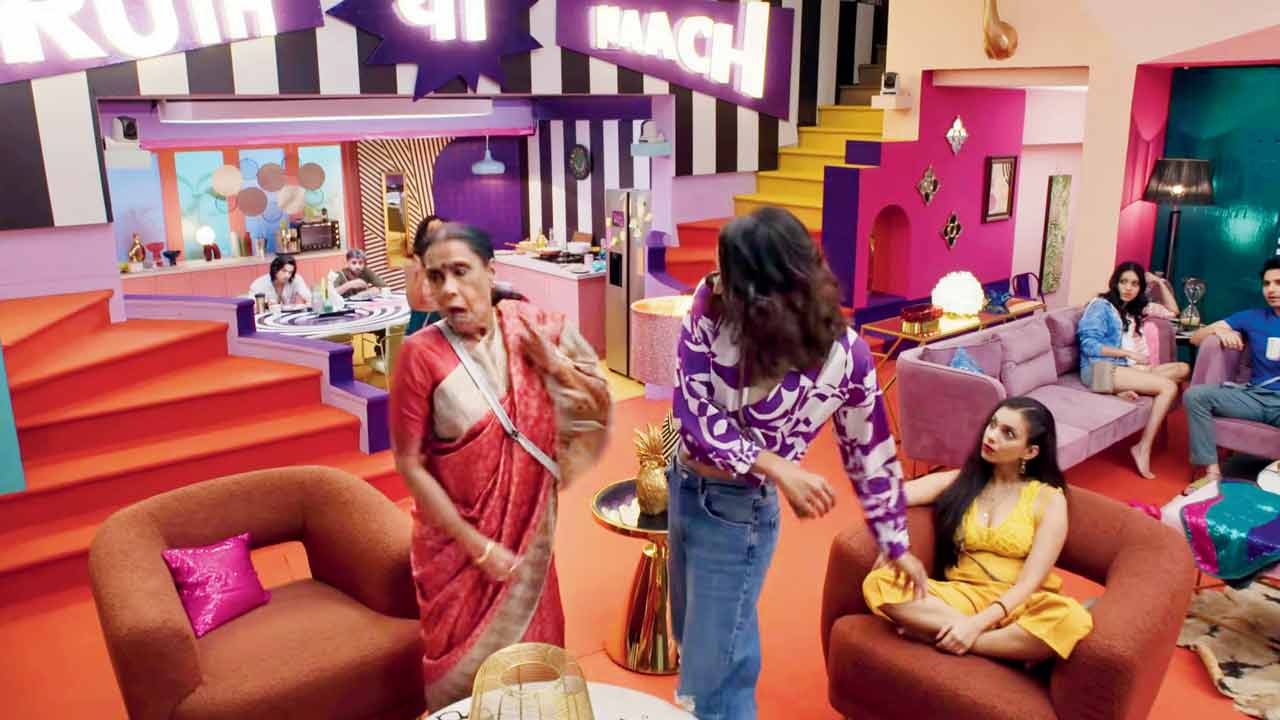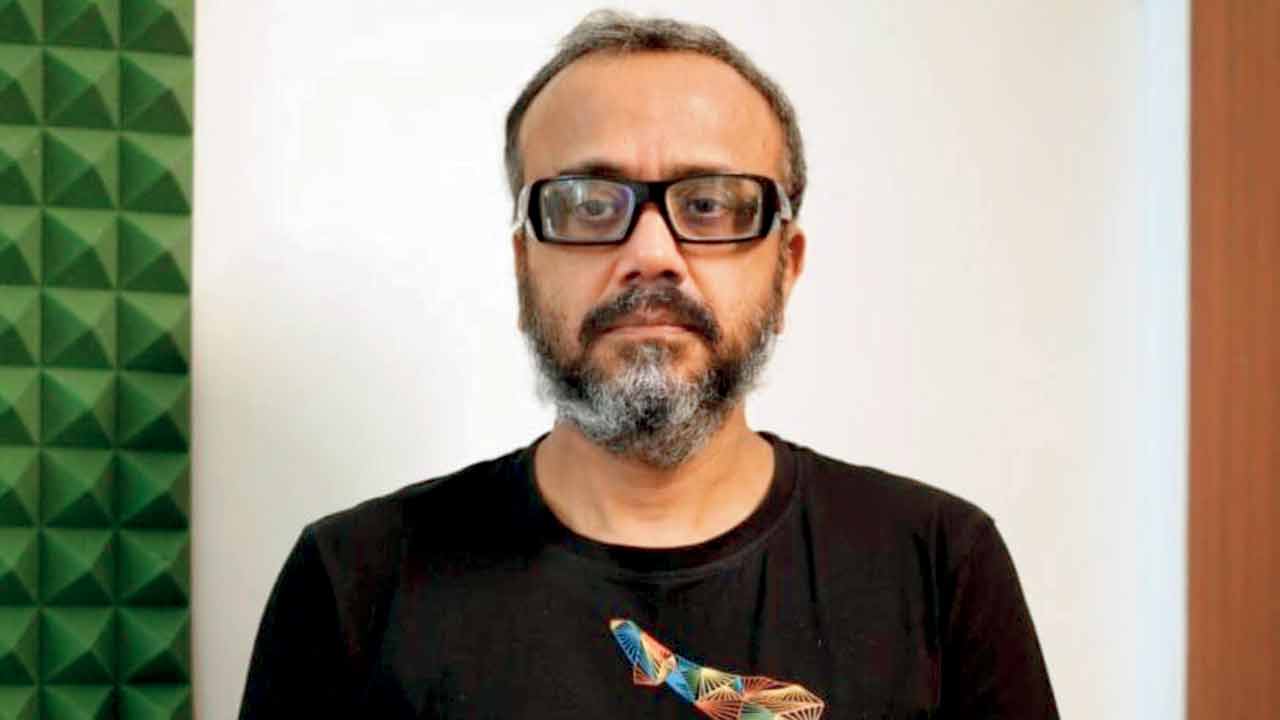Difference between LSD and LSD 2? One had cameras looking at you; the other has you staring at cameras, turned inwards, instead! The camera is us

Stills from Love Sex Aur Dhokha and its recently released sequel
 Most parents will agree. When they were kids themselves, they faced strict deadlines enforced to be back home from the playfield, ideally before dusk settled in.
Most parents will agree. When they were kids themselves, they faced strict deadlines enforced to be back home from the playfield, ideally before dusk settled in.
As parents now, they have to force their children to go out, and frickin’ play! So addicted their children are to the screen.
What’s Gen Alpha obsessing on the screen with, though? The most bizarre content I’d observe my nephew, 10-year-old then, glued to his iPad with, was not a video game.
Which is still understandable. He’d watch videos, over hours, of other people (including families, friends), playing a game, on their screen, instead!
Ah, what the hell’s that? No knock on my nephew Ayan’s choices. He’s a good kid. Just hope the gamer bloke he was following was nothing like Gamer Paapi in Dibakar Banerjee’s Love Sex Aur Dhokha (LSD) 2.
Disturbingly profane Gamer Paapi (Abhinav Singh) in LSD 2 makes response videos, challenging opponents, building online armies, that occasionally spill into the offline space. As they inevitably will.

Delving into deep fakes, virtual reality—at some point, Gamer Paapi literally disappears into the Internet. Haven’t we, already? To update the famous Confucius quote: I think now, we have two lives—the first one ends, once we can’t separate it from the second.
An obvious way to perceive Internet 3.0—metaverse, social media, reels, memes, on infinite scroll—is purely as a drug, designed by tech bros, where you could be its recreational user, reformed abuser, or the absolute influencer, maybe at 18, and who knows, wholly irrelevant by 21.
Wherein the customer is also the product. Both living inside the Internet. Consuming deliciously dumb content on supremely smart phones. Which is also what LSD 2 is roughly about.
Whether you enjoy the film or not—or rightly wonder, if it’s a film at all—it’s definitely a legit extension for Dibakar as a director, born to chronicle the world, as he saw it, through films that could, if nothing else, be a record of its times.
In the same way that his segment on zombies in the Netflix anthology, Ghost Stories (2020), remains still the strongest comment on India’s current, partisan politics; just as much fuelled by the Internet itself.
Or perhaps his expansive political feature, Tees, spanning between 1989 and 2042, as well, that I haven’t seen. Nobody has. Fearing possible pushback from the state, Netflix chose not to release the movie. Self-censorship is inevitably the audience’s loss.
An umbilical cord to a movie like LSD 2 is obviously The Truman Show (1998), that the equally political filmmaker, Sudhir Mishra, calls “one of the great political films of all times”.

Filmmaker Dibakar Banerjee
I didn’t see The Truman Show that way. Its greatness presently resides in its chilling prescience, of course. How did I see Dibakar’s LSD (2010)?
There’s a fine profile piece on Dibakar, for Open Magazine, by writer Rahul Bhatia, from March 20-26, 2010—wherein he follows the director, like a fly-on-the-wall, right before the release of LSD. Somebody tells Dibakar, over the phone, that I hated the movie.
Firstly, he shits on me, as a reviewer, and then totally restless, fully agitated, he mentions me five times, through the day. Only, the review hadn’t been written/published, yet. I actually loved LSD! As did everybody else. The only Dibakar movie I didn’t care for much was Sandeep Aur Pinky Faraar (2021).
Prophetic for what it captured, before smart phones, even social media, LSD, produced by Ekta Kapoor, stands the critical test of time.
Besides, having introduced unknown actors Rajkummar Rao, Nushrratt Bharuccha, Anshuman Jha, Amit Sial, even director Amit Masurkar (Newton), in a cameo. All of whom carried on with fairly glorious careers, thereafter.
Rao, a legit star since, told me, he had answered a casting call for the film, on the bulletin board of FTII, where he was studying acting then.
What’s the difference between LSD and its equally grotesquely dark, disjointed sequel, scripted by Shubham, Prateek Vats (of the stunning cinema verité, Eeb Allay Ooo!)—in the same, deliberately-amateurish, lowest-budget genre?
LSD was about the camera looking at us. Now, turned inwards, we are looking at a billion cameras instead. The camera is us.
Whether that be the transgender contestant (Paritosh Tiwari) in some dance plus reality show, literally named Truth Ya Naach; a janitor (actual trans actor, Bonita Rajpurohit) at a metro station; or, indeed, brain-dead YouTubers doxing Gamer Paapi.
What separates LSD 2 and its prequel more though, 14 years apart, is the film might be half a decade too old. Blurrily placed between present and future, like the best episodes of Black Mirror—the portrait that emerges is of a world we have accepted as the new normal, long enough, for it to carry any shocking reflection, let alone revelation.
A gripping plot alone could save such cinema from its theme/subject—while you flit between screens, through movie tropes, in a computer-generated film, which is a proper sub-genre.
Mahesh Narayanan’s C U Soon (2020) was probably India’s first such. Director Vikramaditya Motwane has shot one with Ananya Panday. Can’t wait.
Otherwise, a TED talk on TikTok, even long chats with my li’l nephew could be a shocking exposé. Virtual reality is stranger than non-fiction.
Mayank Shekhar attempts to make sense of mass culture. He tweets @mayankw14
Send your feedback to mailbag@mid-day.com
The views expressed in this column are the individual’s and don’t represent those of the paper.
 Subscribe today by clicking the link and stay updated with the latest news!" Click here!
Subscribe today by clicking the link and stay updated with the latest news!" Click here!








